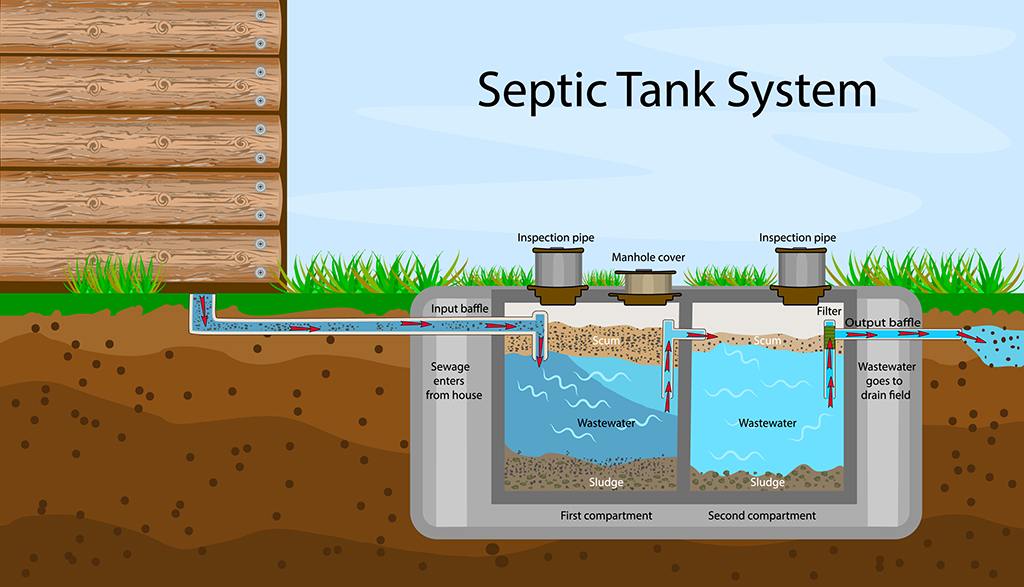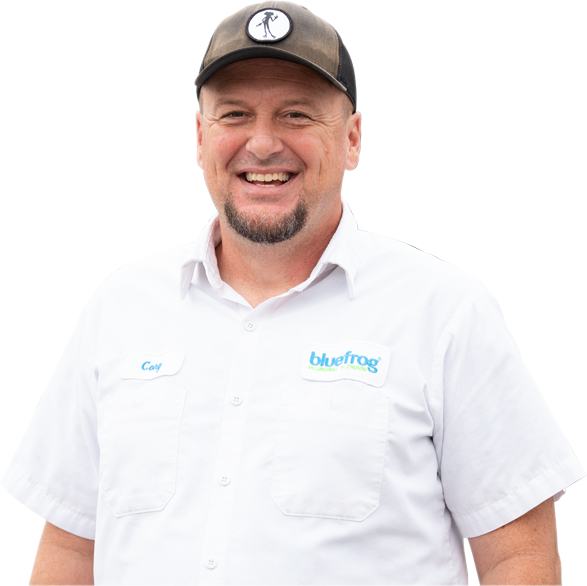
Plumber Tips On How To Take Care Of Your Home’s Septic System | Katy, TX
Photo By KajaNi at Shutterstock
Septic systems are not something that homeowners often think about. It’s not until you have a septic repair issue or your system fails and needs replacement, do most people start researching these systems.
However, there is a lot of information on this topic for homeowners to learn before an emergency occurs. To keep the septic system running smoothly and in compliance with city ordinances, it’s best to take preventative care when dealing with the wastewater produced from home activities such as dish-washing, laundry, and bathing. You can call a plumber for timely inspections.
Sizing Your Septic System
A new home in a Katy, TX subdivision will typically have a septic tank system included in the price of the house. These homes will be pre-plumbed so that all wastewater can flow to the septic system for treatment and disposal. Most septic tanks in new homes will be about 1,000 gallons in size.
Older homes were not plumbed with a septic tank when they were built, and so it is necessary to install one when any of them are remodeled or expanded. A local builder can help you determine how much wastewater your home produces during dry weather conditions. That number, along with recommendations from the city health department or an experienced plumber, will give you an idea of what size tank you need to have installed on the property.
Septic Systems Are Not One Size Fits All
Most homeowners believe that all septic systems are essentially the same – a large concrete box buried near their home containing some mechanism to take care of waste. Not all septic systems are the same; however, there are some similarities between various systems.
Most septic tank systems have four primary components: a septic tank to store sewage. This distribution system comprises small-diameter pipes that distribute effluent from the tank through outlying areas on your property, soil that serves as a natural filter for any remaining impurities in the wastewater, and field lines that carry wastewater away from your home to the leach field.
Septic Tank Pumping Frequency
The size of your septic system will determine how often a professional should pump it. Typically, once or twice each year is enough, depending on how large it is. A larger tank with a greater number of solids inside implies that the tank will fill up faster than one with fewer solids.
Most septic systems are pumped out when they are half full to allow for easier pumping and so that an average-sized family won’t have to wait too long before their turn comes.
How You Can Keep Your Septic System Drainfield from Plugging Up
Only human waste and toilet paper should ever be flushed down the drain. Everything else – including grease, food scraps, fats, oils, and agricultural wastes – can accumulate in your septic system or field lines, making it necessary to call a professional plumber more often for septic tank cleaning or other maintenance services.
Even if you maintain your system carefully, there may come a time when you need to have it cleaned or replaced by a well-trained plumber.
Septic System Cleaning and Maintenance
Back-siphonage is a condition that happens when clean water within the septic system backs up into a home through drain lines. This can happen if something obstructs flow through the main drain field by blocking a lateral line or putting too much weight on the septic tank cover, which causes it to fail.
When this happens, it’s important to repair any damage related quickly before sewage begins overflowing from floor drains and clean-out plugs in your house. That’s where you need an expert plumber to handle the job.
How Much Does It Cost To Have Your Septic Tank Pumped?
The cost of septic tank pumping varies by location and the size of the tank you have installed. For example, in Katy, TX, you can expect to pay between $300 and $400 for a 1,000-gallon tank. The average cost of septic tank pumping services in the state is around $350 for this size tank.
If you consider having your septic system pumped on your own, you must realize that it takes special equipment to remove sludge without spilling it onto your lawn or into your home. It also takes at least one plumber who knows what they are doing because if something goes wrong with the process, there could be an overflow or spillage, which requires costly cleanup or repairs.
How Often Should You Pump Out Your Septic Tank?
Most people will find that their septic tanks need to be pumped by a plumber every three years, but this will vary depending on how many people live in your home and what type of septic tank you have installed.
For example, a family of six may want to pump their system once every two years, whereas an elderly couple who live alone may be able to wait three or four years before pumping out their tank.
Why You Should Avoid Temptation and Hire a Professional for Septic Tank Pumping
Septic tank cleaning is an integral part of septic system maintenance. The average cost of septic tank pumping varies by area, though, so it’s important to call around before choosing which plumber to hire.
If you’re tempted to try doing the job yourself because you think it might be easy enough to save some money, remember that no matter how much or how little sludge is in your tank, a plumber who knows what they are doing will still be needed to complete the task correctly.
If something goes wrong in the process, there could be sewage overflowing in your yard or home, making the problem far worse and be very expensive to fix.
Get in Touch With bluefrog Plumbing + Drain of West Houston
Do you need a septic tank pumping? Call bluefrog Plumbing + Drain of West Houston today to learn more about the septic tank pumping services we offer. We’re happy to provide free quotes in Katy, TX because we know that once you see how affordable our rates are, you’ll realize that hiring us will save you money in the long run!
Not only do we have experience with all types of residential properties, but since 1994 we’ve been serving Katy and West Houston as well. Our technicians can service any size property – even large homes – so call us today to book an appointment!





;)

